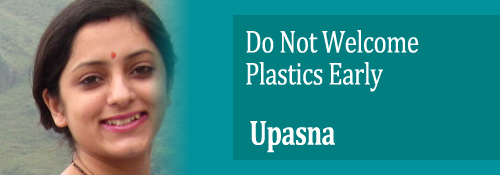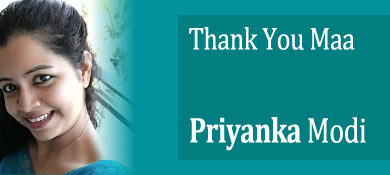Do Not Welcome Plastics Early
When I was preparing myself to welcome a new life, I searched every nook and corner of the Internet for all the Do’s and Don’ts. Like many, I am always concerned with the health of my loved ones. This makes me look for good alternatives to mitigate the effects that pollution and adulteration is bringing.
Plastics have entered our lives like other luxuries and never left. They are now ubiquitous serving vessels.
Decades ago the only baby bottles available to parents were made of glass. But glass was heavy and breakable. So when plastic bottles that were lighter and shatter-proof came along, the glass bottle became almost obsolete.
Most of the plastics contain BPA. Bisphenol A (BPA) is a chemical produced in production of polycarbonate plastics and epoxy resins.
Effects of BPA on humans-
1. Your body’s endocrine system is made up of glands that release hormones to regulate growth, metabolism, and sexual development and function.
2. When consumed, BPA mimics the hormone Estrogen (becomes ‘estrogenic’) and disrupts the natural balance of your endocrine system.
3. BPA has been linked to an increased risk of some cancers, decreased sperm count and reduced fertility and hyperactivity.
4. BPA exposure has also been linked to obesity, diabetes, behavioural and developmental problems and the early onset of puberty.
If you really want to go for plastic for your convenience, keep track of the following numbers:
Beware of #7- The symbol #7 or the label PC (which stands for polycarbonate) is a sign that the bottle contains BPA. Bisphenol A (BPA) is a chemical that is used in polycarbonate plastic products and epoxy resin-based food can liners for decades to harden plastic, keep bacteria out of food, and prevent rust. Those labelled 3 may contain phthalates, so you’ll want to steer clear of items with that number, too.
Trustworthy Numbers- Bottles with the symbol #1, #2, or #4 are made of polyethylene whereas #5 bottles are made of polypropylene. Both kinds of bottle can be used safely since neither type contains BPA.
Some useful Tips to keep in mind while using plastic bottles for your baby:
1. Right temperature-
If you prepare baby formula with boiled water, cool it before pouring it into your baby’s bottle or sippy cup. Polycarbonate breaks down over time with typical use such as repetitive heating and cleaning in the dishwasher.
2. Use powdered formula rather than liquid-
While both liquid and powdered formula cans contain BPA, powdered is a safer choice. The Environmental Working Group has calculated that babies fed reconstituted powdered formula probably receive eight to 20 times less BPA than those fed liquid formula from a metal can.
3. Do not dish wash-
Dishwashing plastic exposes it to very hot temperatures and harsh detergents. Overtime, this can wear the plastic down, with the potential to leach chemicals into food and drink. We recommend washing all plastic meant for baby and child in warm soapy water by hand.
4. Do not microwave in plastic-
Microwaving food and drink is not recommended, even if the plastic is labelled microwave safe. Additionally, if you are using a bottle warmer, we recommend heating your baby’s formula or milk in a glass container instead of plastic. To warm the bottle or cup, place it in a bowl of hot water or run under hot water.
5. Toss it when worn or scratchy-
When there are signs of wear in baby’s plastic drinking cups, bowls, and plates, replace them.
6. Food storage-
Avoid storing oily, greasy, or acidic foods like tomato-based sauces in plastic containers. Storing foods in glass containers is best.
7. Do not store-
Never store breast milk or formula in plastic bottles. Pour it into the bottle just before your baby is ready to eat. Throw out anything that is left over.
If you are wary of using glass bottles as they are brittle and difficult to handle, use silicone sleeves to increase their life. This way you can hand it over to your kid too. After my research, I got a chance to make others aware too. Once when I went to a chemist shop, a father stepped in, asking the shopkeeper for a preferable milk bottle. I was little reluctant at first but decided to intervene. I explained him all of this. He thanked me and made me feel proud.
Let’s take 1 more step towards being Eco-friendly parents.
Upasna is a working Mother who strive to spend as much time as she could with her toddler. A music lover who loves to share her experiences and beliefs which boosted her to start a blog. She is living her dream to settle down in the same city in which she was born and loves to greet people with handmade Greeting Cards. Upasna blogs at Life Through my Bioscope.


